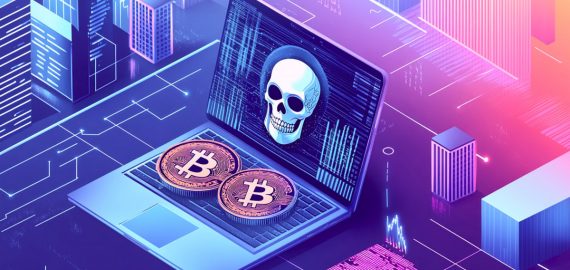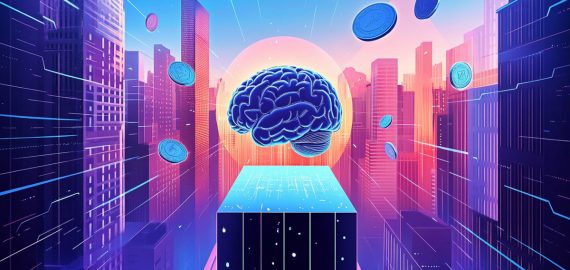Experts At Hack Seasons Highlight Confidential Computing And Improvement In Infrastructure As Catalysts For Trustworthy AI


In Brief
At Hack Seasons in Cannes, experts from Fluence, iExec, Eliza OS, and Near Foundation discussed how blockchain enhances AI transparency, security, and decentralization, enabling trustworthy autonomous agents and expanding AI development via decentralized computing.

At the forefront of blockchain innovation, the latest Hack Seasons Conference held in Cannes, prominent figures from the AI and blockchain sectors convened to explore the evolving intersection of these two transformative technologies. Moderated by Moz, Chief Strategy Developer at Akindo, the panel included speakers from Fluence, iExec, Eliza OS, and the Near Foundation. The discussion centered on the development of AI models and how blockchain can support a future where AI systems operate transparently and independently.
The conversation opened with reflections on the growing synergy between AI and Web3. Panelists emphasized that AI is reaching a pivotal stage—becoming as widely used and influential as traditional search engines like Google. However, unlike search engines, AI has the potential to become a definitive source of truth, which also raises concerns about centralized control and manipulation. This is where blockchain’s decentralized nature plays a critical role. Without decentralization, there is a risk of consolidating AI under governmental or corporate control—something blockchain technologies seek to prevent. Panelists noted that while blockchain offers structure and process integrity, AI systems are often opaque, with uncertain training origins and unpredictable outputs. The integration of blockchain could help improve the accountability and transparency of AI, particularly in terms of how personal data is handled. Together, these technologies can support the development of AI systems that are more trustworthy and understandable.
Further insights were shared regarding the integration of AI agents in Web3. As AI agents become increasingly capable and autonomous, they may take on tasks such as conducting transactions or managing finances on behalf of users—activities that align well with the decentralized and programmable nature of Web3 financial infrastructure. The panelists also explored the notion that in order for AI agents to be effective, they must be granted agency. This includes the ability to perform real-world actions, such as purchasing goods or services and conducting commerce—use cases where cryptocurrency can serve as the enabling medium.
When examining current technological developments, the speakers identified confidential computing on GPUs as a large advancement. Confidential computing can help ensure that AI model training is secure and verifiable, and that inputs and outputs are protected from tampering or data leaks. These capabilities are especially important for building trust in decentralized AI.
Apart from that, the panelists discussed MCP technology as a breakthrough that allows developers to execute code in languages beyond JavaScript and TypeScript, including Python. Combined with frameworks like DSPY, this enables developers to build and refine AI programs with a high level of reliability, which is vital for DeFi and other critical applications. Furthermore, as the current reliance on a few large companies in the AI space grows, it limits broader innovation. Speakers pointed to the emergence of decentralized GPU marketplaces, where smaller teams and startups can rent large amounts of computing power on-demand. This model could dramatically increase access to resources and lower the barrier to entry for AI development.
The conversation concluded with forward-looking perspectives on when AI and blockchain integration will become part of everyday life. According to the panel, blockchain has the potential to enhance the trust, security, and scalability of AI systems. By supporting verifiable tokenomics and trustworthy applications, blockchain can play a foundational role in the next stage of AI development. Speakers also emphasized the need for infrastructure that protects users from fraud and malicious actors, possibly through blockchain-native solutions. Finally, there was a consensus that conversational interfaces will play a key role as AI continues to expand across daily digital interactions, ultimately bringing AI applications into the mainstream.
Don’t miss the full panel video — see all the insights and ideas in one place.
Disclaimer
In line with the Trust Project guidelines, please note that the information provided on this page is not intended to be and should not be interpreted as legal, tax, investment, financial, or any other form of advice. It is important to only invest what you can afford to lose and to seek independent financial advice if you have any doubts. For further information, we suggest referring to the terms and conditions as well as the help and support pages provided by the issuer or advertiser. MetaversePost is committed to accurate, unbiased reporting, but market conditions are subject to change without notice.
About The Author
Alisa, a dedicated journalist at the MPost, specializes in cryptocurrency, zero-knowledge proofs, investments, and the expansive realm of Web3. With a keen eye for emerging trends and technologies, she delivers comprehensive coverage to inform and engage readers in the ever-evolving landscape of digital finance.
More articles

Alisa, a dedicated journalist at the MPost, specializes in cryptocurrency, zero-knowledge proofs, investments, and the expansive realm of Web3. With a keen eye for emerging trends and technologies, she delivers comprehensive coverage to inform and engage readers in the ever-evolving landscape of digital finance.



















































